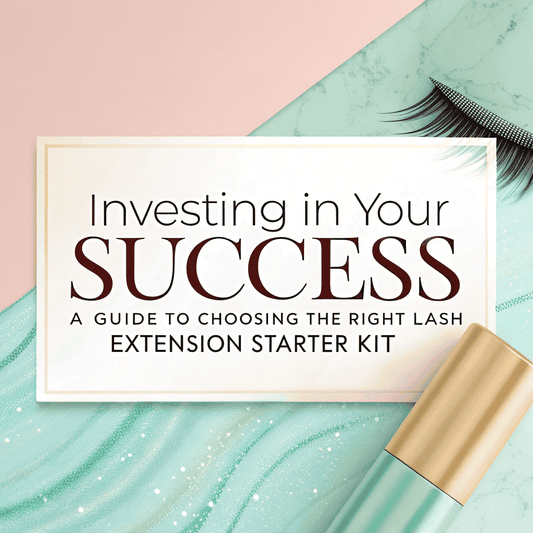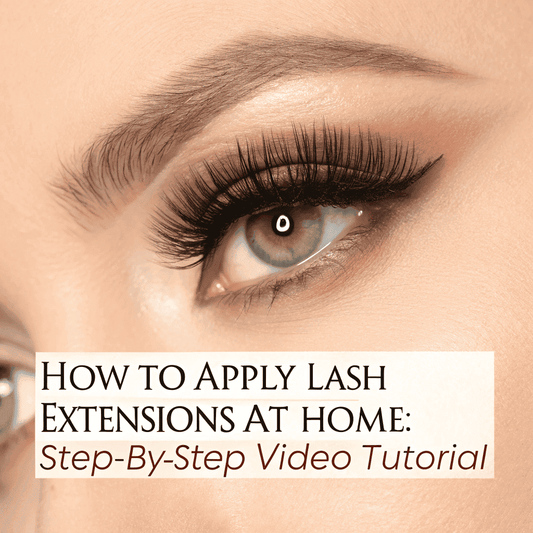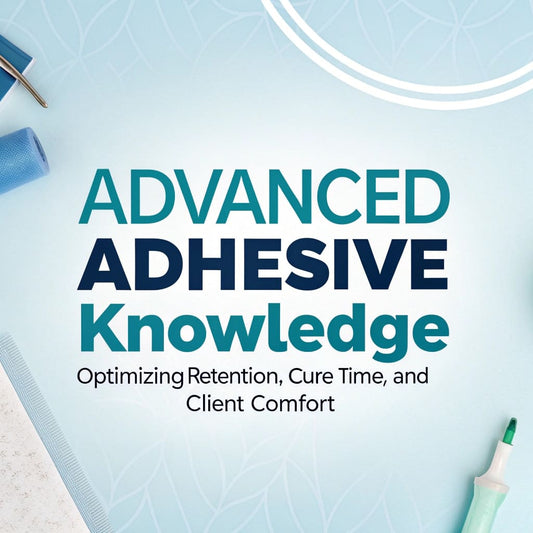Are Lash Extensions Safe for Pregnant Women? Essential Information
Pregnancy is a wonderful time full of changes and decisions, especially when it comes to what’s safe for you and your baby. One question that often comes up is whether you can keep your beauty routine, including treatments like lash extensions. Many people love lash extensions because they give you fuller, longer lashes with minimal effort. But as an expectant mother, it’s natural to wonder if this treatment is safe for you and your baby.
“Is it safe to get lash extensions while pregnant? This is a common concern among expectant mothers,” says Dr. Jane Parker, a well-known obstetrician. She adds, “Your body goes through many changes, and it’s important to know how these can affect your beauty routines.”
In this article, we’ll look at:
- The safety of lash extensions during pregnancy
- Risks and concerns
- Advice from medical experts
- Safe alternatives and home care tips
Having accurate information will help you make the best decision for your health and beauty during this exciting time.
Understanding Lash Extensions
Lash extensions are when synthetic, silk, or mink lashes are attached to your natural lashes with a semi-permanent glue. This gives you fuller, longer lashes and can cut down on your need for mascara. Unlike temporary false lashes that you remove daily, lash extensions last for weeks and fall out naturally as your lashes do.
Getting lash extensions takes about one to two hours, depending on the look you want and the skill of the lash technician. Each lash is applied individually, which needs precision and patience. Make sure to go to a reputable salon with trained and experienced technicians to avoid damage to your lashes or eye infections.
Maintenance is key for lash extensions. You'll need touch-ups every few weeks to keep them looking good. Taking care of them is equally important to make them last and avoid problems. Don't use oil-based products around your eyes, avoid rubbing or pulling your lashes, and follow any care instructions from your technician.
What Are The Potential Risks of Lash Extensions During Pregnancy?
Exposure to Chemicals: One potential risk of lash extensions during pregnancy is the exposure to chemicals found in the adhesives used to attach the extensions. These adhesives often contain formaldehyde and other volatile organic compounds (VOCs) that can cause allergic reactions, respiratory issues, or skin irritation. Pregnant women may be more sensitive to these chemicals, increasing the likelihood of adverse reactions.
Eye Infections: Another concern is the increased risk of eye infections. The application process involves close contact with the eye area, and if not done in a sterile environment, it can introduce bacteria or other pathogens. Pregnant women have a slightly suppressed immune system, making them more susceptible to infections. This could pose a risk to both the mother and the developing fetus.
Hormonal Changes: Pregnancy can cause hormonal changes that affect hair growth cycles. These changes might result in lash extensions not adhering as well or falling out more quickly, leading to the need for more frequent touch-ups. This increased frequency of exposure to adhesives and potential for eye irritation might not be ideal during pregnancy.
Comfort During Application: Lying still for extended periods during the lash extension application can be uncomfortable for pregnant women, especially in the later stages of pregnancy. This can lead to back pain, reduced circulation, and general discomfort, which might outweigh the benefits of having lash extensions.
Heightened Sensitivity to Smells: Some women experience heightened sensitivity to smells during pregnancy, and the fumes from lash extension adhesives can be particularly bothersome. This heightened sensitivity can lead to nausea, headaches, or dizziness, making the lash extension process unpleasant or even intolerable for some expectant mothers.

Consulting Your Obstetrician: What to Ask
When it comes to beauty routines during pregnancy, consulting your obstetrician should be your first step. Here are some key questions to guide your discussion:
- Is it safe to get lash extensions while pregnant? Your obstetrician can provide personalized advice, taking into account your medical history and any potential risks.
- Are there specific ingredients in lash adhesives I should avoid? Discuss any known allergens or chemicals that could pose a risk to you or your baby.
- Can I undergo a patch test to check for allergic reactions? It’s a good idea to test the adhesive on a small skin area before committing to a full set of extensions.
- How can I ensure my comfort during the procedure? Prolonged periods of lying down might be uncomfortable, so ask for advice on comfortable positioning and taking breaks.
- Are there any signs or symptoms to watch for post-application? Knowing what to look out for in terms of irritation or allergic reactions can help you address issues promptly.
By bringing up these questions, you can address concerns up-front and ensure the safest choice for you and your baby. It's always best to be fully informed and prepared before proceeding with any beauty treatments during pregnancy.

Choosing Safe Salons: What to Look For
When picking a salon for lash extensions during pregnancy, remember these key points for comfort and safety:
- Experienced Technicians: Choose a salon with licensed and skilled technicians. They should understand the special needs of expectant mothers and take the right precautions during the procedure.
- Cleanliness and Hygiene: Ensure the salon is clean. They should sanitize tools and equipment properly to prevent infections. Don't hesitate to ask about their cleaning practices before booking.
- Hypoallergenic Products: Make sure the salon uses high-quality, hypoallergenic adhesives and products. Pregnancy can make your skin more sensitive, so you need to avoid irritants. Talk to your lash technician about the products they use and ask for alternatives if needed.
- Comfort: Comfort is crucial. Pregnancy can make lying down for long periods uncomfortable. Pick a salon with adjustable chairs or beds and inform your technician about your pregnancy. Some salons offer pregnancy pillows for extra support.
- Reviews and Recommendations: Read reviews and ask for recommendations from other expectant mothers. Personal stories can help you find salons that truly care about pregnant clients. Online reviews can also give you an idea of the salon's reputation and service quality.
By considering these factors, you can choose a salon that ensures a safe and comfy lash extension experience during your pregnancy.
Are There Any Specific Ingredients in Lash Adhesives That Should Be Avoided?
One of the primary concerns with lash adhesives during pregnancy is the presence of formaldehyde.
Formaldehyde is a known irritant and potential carcinogen that can cause:
- Allergic reactions
- Respiratory issues
- Skin irritation
Pregnant women are often advised to avoid products containing formaldehyde due to its potential health risks.
Another ingredient to be cautious of is cyanoacrylate, commonly used in lash adhesives. While cyanoacrylate itself is generally considered safe, it can release fumes that may cause respiratory irritation. Pregnant women, who may already be experiencing heightened sensitivity, should be particularly careful about inhaling these fumes.
"40% of lash technicians recommend patch tests for pregnant clients"
Parabens are preservatives found in some lash adhesives that can disrupt hormonal balance. These chemicals mimic estrogen in the body and have been linked to various health concerns, including reproductive issues. It's advisable for pregnant women to avoid products containing parabens to minimize any potential risks.
Phthalates, often used to increase the flexibility of adhesives, are another group of chemicals to avoid. These substances have been associated with developmental and reproductive toxicity. Pregnant women should look for lash adhesives that are labeled as phthalate-free to ensure a safer choice.
Lastly, toluene is a solvent that can be found in some lash adhesives. It is known to cause:
- Dizziness
- Headaches
- More severe health issues with prolonged exposure
Pregnant women should steer clear of products containing toluene to avoid any potential adverse effects.
Hypoallergenic Alternatives: Are They Better?
For expectant mothers, staying on top of beauty routines can sometimes feel like a balancing act. Hypoallergenic lash extensions might be your best bet if you're worried about the usual risks. These options are specifically made to lower the chance of allergies—crucial when your skin is extra sensitive during pregnancy.
Why Go Hypoallergenic?The big win with hypoallergenic adhesives? They usually have fewer nasty chemicals. Many standard glues have latex or formaldehyde, which can be irritating. Hypoallergenic ones skip these, offering a safer option.
Patch Test is KeyAlways do a patch test first, even with hypoallergenic products. This helps you spot any bad reactions before going all in. Got redness, swelling, or itching? Stop immediately and check with your healthcare provider.
Pick the Right SalonChoosing a salon that uses chemical-free or low-fume products is a game-changer. Look up reviews online or ask around for recommendations. Salons that prioritize safer products often excel in hygiene and have well-trained technicians.
Overall, while hypoallergenic options are generally safer, trust your instincts. If something feels off, talk to your obstetrician and tweak your beauty routine accordingly.

What Do Medical Professionals Say About Lash Extensions For Expectant Mothers?
Doctors recommend caution with lash extensions during pregnancy. The main worry is the chemicals in the adhesives used to attach the extensions. These adhesives can contain formaldehyde, which can be harmful if inhaled a lot. Pregnant women are more sensitive to these chemicals because of hormonal changes.
There is also a concern about allergic reactions. Pregnancy changes a woman's immune system, making her more likely to get new allergies or make old ones worse. The adhesives and materials in lash extensions could cause allergic reactions, leading to discomfort or bigger health problems.
"Pregnancy can alter a woman's immune system, making her more prone to developing new allergies or exacerbating existing ones."
Another thing to consider is the hygiene and infection risk. The process involves close contact with the eyes, and if the environment isn't sterile, there's a risk of eye infections. Pregnant women may have weaker immune systems, making them more likely to get infections.
Doctors also say that the physical position required for applying lash extensions can be uncomfortable for pregnant women, especially later in pregnancy. Lying still for a long time can cause back pain and other issues, which may not be good for expectant mothers.
Are There Safer Alternatives To Lash Extensions For Pregnant Women?
Pregnant and looking for lash extension alternatives? Let's explore some safe and effective options!
Mascara for Sensitive Eyes
Opt for mascara specifically formulated for sensitive eyes. These products usually skip harsh chemicals and still offer fantastic volume and length.
Lash Serums
Try lash serums that encourage natural lash growth. Look for nourishing ingredients like peptides, biotin, and vitamins to safely boost lash length and thickness.

Magnetic Lashes
Magnetic lashes could be your go-to. They skip the adhesives and use tiny magnets to attach to your natural lashes. Easy to remove and gentle on your skin!
Lash Lifts
Consider getting a lash lift. This treatment curls and lifts your natural lashes with a gentle, semi-permanent solution. No extensions or harsh chemicals needed!
Tinted Lash Primers
Lastly, tinted lash primers can be a great choice. Apply them before mascara to add volume and length, achieving a dramatic look without extensions.
DIY Lash Extensions: Are They Safer?
If you're considering DIY lash extensions at home, you're not alone. Many pregnant women find the idea appealing, thinking it may be safer and more controlled. However, it's crucial to weigh the pros and cons before diving in.
Convenience is Key
One of the biggest perks of DIY lash extensions is convenience. You can apply them at your own pace in the comfort of your home. But keep in mind, the process involves using adhesives and tools that require precision. If you're not experienced, you could make mistakes that lead to irritation or even eye infections.
Quality Matters
The adhesive in at-home kits may not be of the same quality as those used by professionals. Some may contain chemicals that could pose risks during pregnancy. Always read ingredient labels carefully and opt for hypoallergenic options when possible.
Safety First
Professional lash technicians are trained to apply extensions safely. When doing it yourself, you lack this expertise, which increases the risk of poorly attached lashes or uneven distribution, both of which can cause discomfort.
Follow Instructions
Make sure to follow all instructions provided with any DIY eyelash extension kit meticulously. If you experience any signs of allergic reactions, such as redness, swelling, or itching, remove the extensions immediately and consult a healthcare provider.

Ultimately, while DIY lash extensions might seem like a safer route during pregnancy, they come with their own set of risks. If you choose to go down this path, proceed with caution and equip yourself with as much knowledge as possible.
Have There Been Any Documented Cases Of Adverse Effects From Lash Extensions During Pregnancy?
While there isn't a ton of research specifically about the safety of lash extensions during pregnancy, there are some important things you should know.
The biggest concern is the adhesive used. Many adhesives contain chemicals like formaldehyde, which can cause allergic reactions, eye irritation, and even breathing problems. Because of hormonal changes, pregnant women might be more sensitive to these chemicals, which can increase the risk of reactions.
Another issue to consider is the risk of infection. Since the lash extension process involves close contact with your eyes, poor hygiene practices in the salon could lead to bacterial or fungal infections. Pregnancy can slightly weaken your immune system, making infection a bigger concern.
Many women report more sensitivity and irritation around their eyes during pregnancy. The lash extension process could make this worse, leading to discomfort or even severe reactions.
Even though there aren't large studies linking lash extensions to pregnancy problems, the potential risks from adhesive chemicals, infection, and increased sensitivity should be considered. Always talk to your healthcare provider before getting lash extensions while pregnant.
Natural Beauty Boosters: Lash Serums and Other Safe Options
When it comes to enhancing your lashes during pregnancy, natural beauty boosters can be a safe and effective alternative to traditional lash extensions.
Nourishing Lash Serums
Lash serums can be a great option for expectant mothers. They usually have vitamins and peptides that help lashes grow and stay strong. Many are gentle formulas, safe for use during pregnancy. Make sure to choose ones free from harsh chemicals and labeled as pregnancy-safe.

Castor Oil
Natural oils like castor oil are known for their lash-boosting properties. Rich in ricinoleic acid, castor oil can nourish lash follicles, possibly leading to thicker and longer lashes. Applying a small amount with a clean brush before bedtime can be a safe and natural way to enhance your lashes.
Biotin Supplements
Biotin, or vitamin B7, is another natural method to promote healthy hair growth, including eyelashes. Always check with your healthcare provider before adding any supplement to your routine, especially during pregnancy.
These natural alternatives not only help enhance your lashes but also ensure that you and your baby stay safe from the potential risks of some lash extension adhesives.
Conclusion
In conclusion, while the allure of lush, long lashes can be tempting, it's essential to carefully weigh the risks and recommendations when considering lash extensions during pregnancy. Ensuring your safety and comfort, along with staying informed about the materials and procedures involved, can help you make the best decision for you and your baby. Always consult with your obstetrician and choose a reputable salon that prioritizes your well-being.
If you have any questions or need further guidance, don't hesitate to contact us at ULash. We're here to help you navigate your beauty choices with confidence and care.





